Lesson 9: True and false concepts of freedom and slavery (True Devotion 68 – 77)
08/26/2025
Back to: Course for Consecration to Jesus through Mary
The very word “slavery” evokes images of oppression and misery. But, St. Louis de Montfort talks about a new form of slavery: “voluntary slavery of love”! In this very important lesson, Fr. Timothy talks about a fundamental question in this course: the true and false concepts of freedom and slavery. He also clears common doubts and objections we have to the practice of “Holy Slavery”.
Meditation and Prayers of the Day:
Veni Creator Spiritus and Ave Maris Stella
Click below to read.
>> Pray today’s prayers together with Fr. Timothy: https://heralds.org/Prayers9 <<
In the name of the Father, and of the Son, and of the Holy Spirit.
Come, O Creator Spirit blest!
And in our souls take up thy rest;
Come with Thy grace and heavenly aid,
To fill the hearts which Thou hast made.
Great Paraclete! To Thee we cry,
O highest gift of God most high!
O font of life! O fire of love!
And sweet anointing from above.
Thou in Thy sevenfold gifts art known,
The finger of God’s hand we own;
The promise of the Father, Thou!
Who dost the tongue with power endow.
Kindle our senses from above,
And make our hearts o’erflow with love;
With patience firm and virtue high
The weakness of our flesh supply.
Far from us drive the foe we dread,
And grant us Thy true peace instead;
So shall we not, with Thee for guide,
Turn from the path of life aside.
Oh, may Thy grace on us bestow
The Father and the Son to know,
And Thee through endless times confessed
Of both the eternal Spirit blest.
All glory while the ages run
Be to the Father and the Son
Who rose from death; the same to Thee,
O Holy Ghost, eternally.
Amen.
In the name of the Father, and of the Son, and of the Holy Spirit.
Come, O Creator Spirit blest!
And in our souls take up thy rest;
Come with Thy grace and heavenly aid,
To fill the hearts which Thou hast made.
Great Paraclete! To Thee we cry,
O highest gift of God most high!
O font of life! O fire of love!
And sweet anointing from above.
Thou in Thy sevenfold gifts art known,
The finger of God’s hand we own;
The promise of the Father, Thou!
Who dost the tongue with power endow.
Kindle our senses from above,
And make our hearts o’erflow with love;
With patience firm and virtue high
The weakness of our flesh supply.
Far from us drive the foe we dread,
And grant us Thy true peace instead;
So shall we not, with Thee for guide,
Turn from the path of life aside.
Oh, may Thy grace on us bestow
The Father and the Son to know,
And Thee through endless times confessed
Of both the eternal Spirit blest.
All glory while the ages run
Be to the Father and the Son
Who rose from death; the same to Thee,
O Holy Ghost, eternally.
Amen.
>> Pray today’s prayers together with Fr. Timothy: https://heralds.org/Prayers9 <<
Hail, bright star of ocean,
God’s own Mother blest,
Ever sinless Virgin,
Gate of heavenly rest.
Taking that sweet Ave
Which from Gabriel came,
Peace confirm within us,
Changing Eva’s name.
Break the captives’ fetters,
Light on blindness pour,
All our ills expelling,
Every bliss implore.
Show thyself a Mother;
May the Word Divine,
Born for us thy Infant,
Hear our prayers through thine.
Virgin all excelling,
Mildest of the mild,
Freed from guilt, preserve us,
Pure and undefiled.
Keep our life all spotless,
Make our way secure,
Till we find in Jesus
Joy forevermore.
Through the highest heaven
To the Almighty Three,
Father, Son and Spirit,
One same glory be.
Amen.
Hail, bright star of ocean,
God’s own Mother blest,
Ever sinless Virgin,
Gate of heavenly rest.
Taking that sweet Ave
Which from Gabriel came,
Peace confirm within us,
Changing Eva’s name.
Break the captives’ fetters,
Light on blindness pour,
All our ills expelling,
Every bliss implore.
Show thyself a Mother;
May the Word Divine,
Born for us thy Infant,
Hear our prayers through thine.
Virgin all excelling,
Mildest of the mild,
Freed from guilt, preserve us,
Pure and undefiled.
Keep our life all spotless,
Make our way secure,
Till we find in Jesus
Joy forevermore.
Through the highest heaven
To the Almighty Three,
Father, Son and Spirit,
One same glory be.
Amen.
68. From what Jesus Christ is in regard to us we must conclude, as St. Paul says, that we belong not to ourselves but entirely to him as his members and his slaves, for he bought us at an infinite price - the shedding of his Precious Blood. Before baptism, we belonged to the devil as slaves, but baptism made us in very truth slaves of Jesus.
We must therefore live, work and die for the sole purpose of bringing forth fruit for him, glorifying him in our body and letting him reign in our soul. We are his conquest, the people he has won, his heritage.
It is for this reason that the Holy Spirit compares us: 1) to trees that are planted along the waters of grace in the field of the Church and which must bear their fruit when the time comes; 2) to branches of the vine of which Jesus is the stem, which must yield good grapes; 3) to a flock of sheep of which Jesus is the Shepherd, which must increase and give milk; 4) to good soil cultivated by God, where the seed will spread and produce crops up to thirty-fold, sixty-fold, or a hundred-fold. Our Lord cursed the barren fig-tree and condemned the slothful servant who wasted his talent.
All this proves that he wishes to receive some fruit from our wretched selves, namely, our good works, which by right belong to him alone, "created in Jesus Christ for good works". These words of the Holy Spirit show that Jesus is the sole source and must be the sole end of all our good works, and that we must serve him not just as paid servants but as slaves of love. Let me explain what I mean.
69. There are two ways of belonging to another person and being subject to his authority. One is by ordinary service and the other is by slavery. And so we must use the terms "servant" and "slave". Ordinary service in Christian countries is when a man is employed to serve another for a certain length of time at a wage which is fixed or agreed upon. When a man is totally dependent on another for life, and must serve his master without expecting any wages or recompense, when he is treated just like a beast of the field over which the owner has the right of life and death, then it is slavery.
70. Now there are three kinds of slavery; natural slavery, enforced slavery, and voluntary slavery. All creatures are slaves of God in the first sense, for "the earth and its fullness belong to the Lord". The devils and the damned are slaves in the second sense. The saints in heaven and the just on earth are slaves in the third sense. Voluntary slavery is the most perfect of all three states, for by it we give the greatest glory to God, who looks into the heart and wants it to be given to him. Is he not indeed called the God of the heart or of the loving will? For by this slavery we freely choose God and his service before all things, even if we were not by our very nature obliged to do so.
71. There is a world of difference between a servant and a slave. 1) A servant does not give his employer all he is, all he has, and all he can acquire by himself or through others. A slave, however, gives himself to his master completely and exclusively with all he has and all he can acquire. 2) A servant demands wages for the services rendered to his employer. A slave, on the other hand, can expect nothing, no matter what skill, attention or energy he may have put into his work. 3) A servant can leave his employer whenever he pleases, or at least when the term of his service expires, whereas the slave has no such right. 4) An employer has no right of life and death over a servant. Were he to kill him as he would a beast of burden, he would commit murder. But the master of a slave has by law the right of life and death over him, so that he can sell him to anyone he chooses or - if you will pardon the comparison - kill him as he would kill his horse. 5) Finally, a servant is in his employer's service only for a time; a slave for always.
72. No other human state involves belonging more completely to another than slavery. Among Christian peoples, nothing makes a person belong more completely to Jesus and his holy Mother than voluntary slavery. Our Lord himself gave us the example of this when out of love for us he "took the form of a slave". Our Lady gave us the same example when she called herself the handmaid or slave of the Lord. The Apostle considered it an honour to be called "slave of Christ". Several times in Holy Scripture, Christians are referred to as "slaves of Christ".
The Latin word "servus" at one time signified only a slave because servants as we know them did not exist. Masters were served either by slaves or by freedmen. The Catechism of the Council of Trent leaves no doubt about our being slaves of Jesus Christ, using the unequivocal term "Mancipia Christi", which plainly means: slaves of Christ.
73. Granting this, I say that we must belong to Jesus and serve him not just as hired servants but as willing slaves who, moved by generous love, commit themselves to his service after the manner of slaves for the honour of belonging to him. Before we were baptised we were the slaves of the devil, but baptism made us the slaves of Jesus. Christians can only be slaves of the devil or slaves of Christ.
74. What I say in an absolute sense of our Lord, I say in a relative sense of our Blessed Lady. Jesus, in choosing her as his inseparable associate in his life, glory and power in heaven and on earth, has given her by grace in his kingdom all the same rights and privileges that he possesses by nature. "All that belongs to God by nature belongs to Mary by grace", say the saints, and, according to them, just as Jesus and Mary have the same will and the same power, they have also the same subjects, servants and slaves.
75. Following therefore the teaching of the saints and of many great men we can call ourselves, and become, the loving slaves of our Blessed Lady in order to become more perfect slaves of Jesus. Mary is the means our Lord chose to come to us and she is also the means we should choose to go to him, for she is not like other creatures who tend rather to lead us away from God than towards him, if we are over-attached to them. Mary's strongest inclination is to unite us to Jesus, her Son, and her Son's strongest wish is that we come to him through his Blessed Mother. He is pleased and honoured just as a king would be pleased and honoured if a citizen, wanting to become a better subject and slave of the king, made himself the slave of the queen. That is why the Fathers of the Church, and St. Bonaventure after them, assert that the Blessed Virgin is the way which leads to our Lord.
76. Moreover, if, as I have said, the Blessed Virgin is the Queen and Sovereign of heaven and earth, does she not then have as many subjects and slaves as there are creatures? "All things, including Mary herself, are subject to the power of God. All things, God included, are subject to the Virgin's power", so we are told by St. Anselm, St. Bernard, St. Bernardine and St. Bonaventure. Is it not reasonable to find that among so many slaves there should be some slaves of love, who freely choose Mary as their Queen? Should men and demons have willing slaves, and Mary have none? A king makes it a point of honour that the queen, his consort, should have her own slaves, over whom she has right of life and death, for honour and power given to the queen is honour and power given to the king. Could we possibly believe that Jesus, the best of all sons, who shared his power with his Blessed Mother, would resent her having her own slaves? Has he less esteem and love for his Mother than Ahasuerus had for Esther, or Solomon for Bathsheba? Who could say or even think such a thing?
77. But where is my pen leading me? Why am I wasting my time proving something so obvious? If people are unwilling to call themselves slaves of Mary, what does it matter? Let them become and call themselves slaves of Jesus Christ, for this is the same as being slaves of Mary, since Jesus is the fruit and glory of Mary. This is what we do perfectly in the devotion we shall discuss later.
We must therefore live, work and die for the sole purpose of bringing forth fruit for him, glorifying him in our body and letting him reign in our soul. We are his conquest, the people he has won, his heritage.
It is for this reason that the Holy Spirit compares us: 1) to trees that are planted along the waters of grace in the field of the Church and which must bear their fruit when the time comes; 2) to branches of the vine of which Jesus is the stem, which must yield good grapes; 3) to a flock of sheep of which Jesus is the Shepherd, which must increase and give milk; 4) to good soil cultivated by God, where the seed will spread and produce crops up to thirty-fold, sixty-fold, or a hundred-fold. Our Lord cursed the barren fig-tree and condemned the slothful servant who wasted his talent.
All this proves that he wishes to receive some fruit from our wretched selves, namely, our good works, which by right belong to him alone, "created in Jesus Christ for good works". These words of the Holy Spirit show that Jesus is the sole source and must be the sole end of all our good works, and that we must serve him not just as paid servants but as slaves of love. Let me explain what I mean.
69. There are two ways of belonging to another person and being subject to his authority. One is by ordinary service and the other is by slavery. And so we must use the terms "servant" and "slave". Ordinary service in Christian countries is when a man is employed to serve another for a certain length of time at a wage which is fixed or agreed upon. When a man is totally dependent on another for life, and must serve his master without expecting any wages or recompense, when he is treated just like a beast of the field over which the owner has the right of life and death, then it is slavery.
70. Now there are three kinds of slavery; natural slavery, enforced slavery, and voluntary slavery. All creatures are slaves of God in the first sense, for "the earth and its fullness belong to the Lord". The devils and the damned are slaves in the second sense. The saints in heaven and the just on earth are slaves in the third sense. Voluntary slavery is the most perfect of all three states, for by it we give the greatest glory to God, who looks into the heart and wants it to be given to him. Is he not indeed called the God of the heart or of the loving will? For by this slavery we freely choose God and his service before all things, even if we were not by our very nature obliged to do so.
71. There is a world of difference between a servant and a slave. 1) A servant does not give his employer all he is, all he has, and all he can acquire by himself or through others. A slave, however, gives himself to his master completely and exclusively with all he has and all he can acquire. 2) A servant demands wages for the services rendered to his employer. A slave, on the other hand, can expect nothing, no matter what skill, attention or energy he may have put into his work. 3) A servant can leave his employer whenever he pleases, or at least when the term of his service expires, whereas the slave has no such right. 4) An employer has no right of life and death over a servant. Were he to kill him as he would a beast of burden, he would commit murder. But the master of a slave has by law the right of life and death over him, so that he can sell him to anyone he chooses or - if you will pardon the comparison - kill him as he would kill his horse. 5) Finally, a servant is in his employer's service only for a time; a slave for always.
72. No other human state involves belonging more completely to another than slavery. Among Christian peoples, nothing makes a person belong more completely to Jesus and his holy Mother than voluntary slavery. Our Lord himself gave us the example of this when out of love for us he "took the form of a slave". Our Lady gave us the same example when she called herself the handmaid or slave of the Lord. The Apostle considered it an honour to be called "slave of Christ". Several times in Holy Scripture, Christians are referred to as "slaves of Christ".
The Latin word "servus" at one time signified only a slave because servants as we know them did not exist. Masters were served either by slaves or by freedmen. The Catechism of the Council of Trent leaves no doubt about our being slaves of Jesus Christ, using the unequivocal term "Mancipia Christi", which plainly means: slaves of Christ.
73. Granting this, I say that we must belong to Jesus and serve him not just as hired servants but as willing slaves who, moved by generous love, commit themselves to his service after the manner of slaves for the honour of belonging to him. Before we were baptised we were the slaves of the devil, but baptism made us the slaves of Jesus. Christians can only be slaves of the devil or slaves of Christ.
74. What I say in an absolute sense of our Lord, I say in a relative sense of our Blessed Lady. Jesus, in choosing her as his inseparable associate in his life, glory and power in heaven and on earth, has given her by grace in his kingdom all the same rights and privileges that he possesses by nature. "All that belongs to God by nature belongs to Mary by grace", say the saints, and, according to them, just as Jesus and Mary have the same will and the same power, they have also the same subjects, servants and slaves.
75. Following therefore the teaching of the saints and of many great men we can call ourselves, and become, the loving slaves of our Blessed Lady in order to become more perfect slaves of Jesus. Mary is the means our Lord chose to come to us and she is also the means we should choose to go to him, for she is not like other creatures who tend rather to lead us away from God than towards him, if we are over-attached to them. Mary's strongest inclination is to unite us to Jesus, her Son, and her Son's strongest wish is that we come to him through his Blessed Mother. He is pleased and honoured just as a king would be pleased and honoured if a citizen, wanting to become a better subject and slave of the king, made himself the slave of the queen. That is why the Fathers of the Church, and St. Bonaventure after them, assert that the Blessed Virgin is the way which leads to our Lord.
76. Moreover, if, as I have said, the Blessed Virgin is the Queen and Sovereign of heaven and earth, does she not then have as many subjects and slaves as there are creatures? "All things, including Mary herself, are subject to the power of God. All things, God included, are subject to the Virgin's power", so we are told by St. Anselm, St. Bernard, St. Bernardine and St. Bonaventure. Is it not reasonable to find that among so many slaves there should be some slaves of love, who freely choose Mary as their Queen? Should men and demons have willing slaves, and Mary have none? A king makes it a point of honour that the queen, his consort, should have her own slaves, over whom she has right of life and death, for honour and power given to the queen is honour and power given to the king. Could we possibly believe that Jesus, the best of all sons, who shared his power with his Blessed Mother, would resent her having her own slaves? Has he less esteem and love for his Mother than Ahasuerus had for Esther, or Solomon for Bathsheba? Who could say or even think such a thing?
77. But where is my pen leading me? Why am I wasting my time proving something so obvious? If people are unwilling to call themselves slaves of Mary, what does it matter? Let them become and call themselves slaves of Jesus Christ, for this is the same as being slaves of Mary, since Jesus is the fruit and glory of Mary. This is what we do perfectly in the devotion we shall discuss later.
Click → ANNEX_Leo XIII_Libertas
Click → ANNEX_Slave Bishop_HG Magazine
Click → ANNEX_Slavery that liberates
Click → ANNEX_Slave Bishop_HG Magazine
Click → ANNEX_Slavery that liberates
Course Lessons
Available for Download
Curso
.
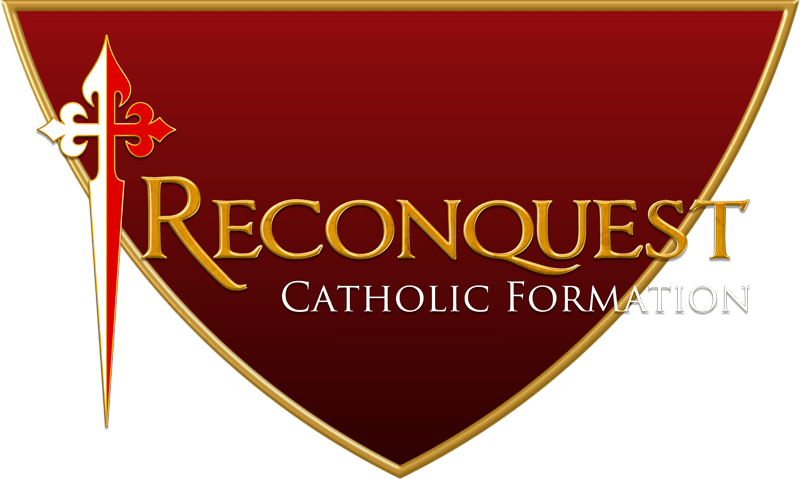



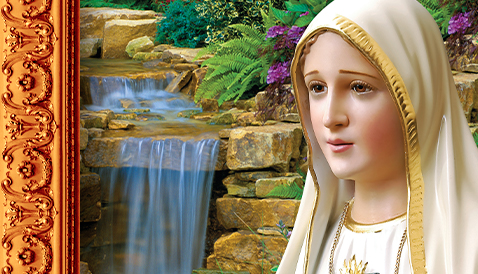
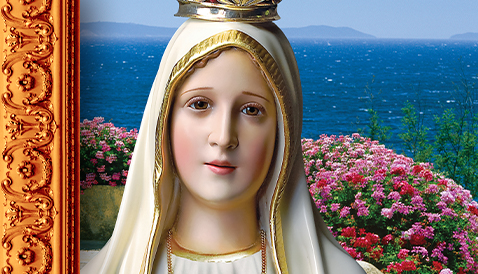
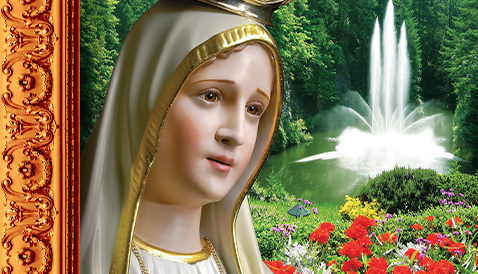
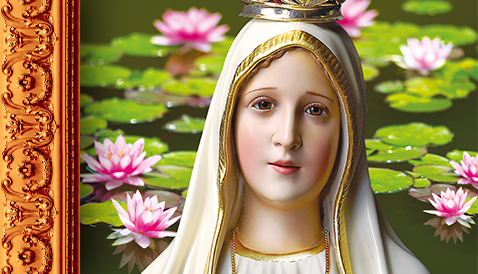
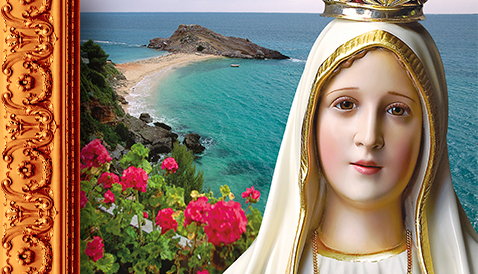
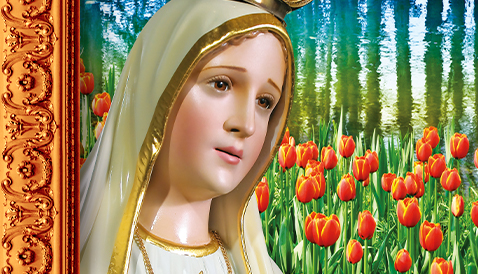
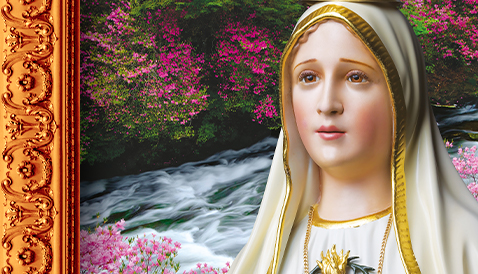

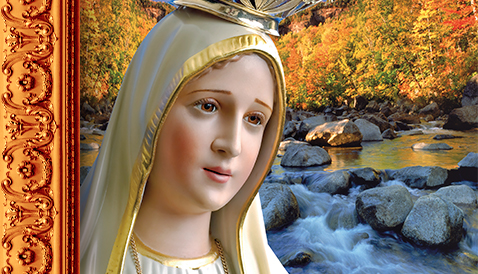
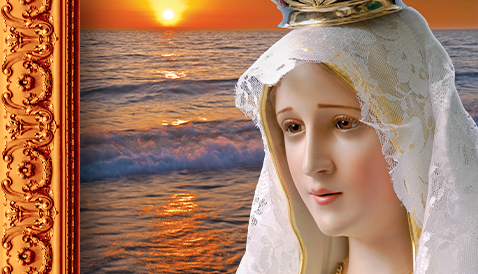
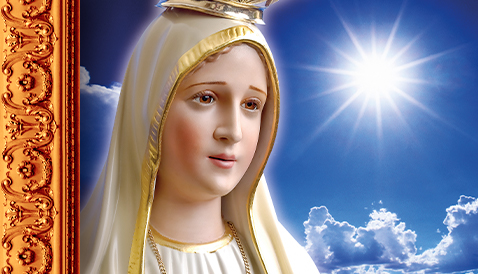
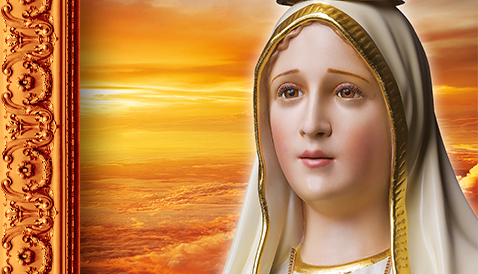
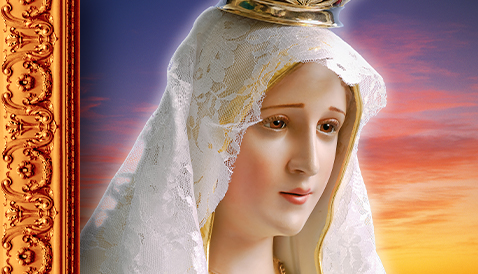
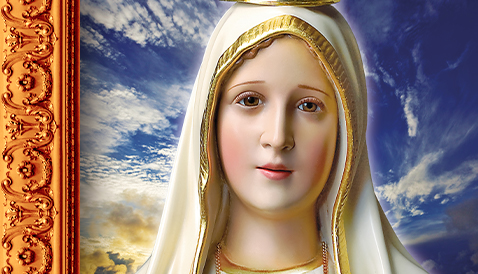
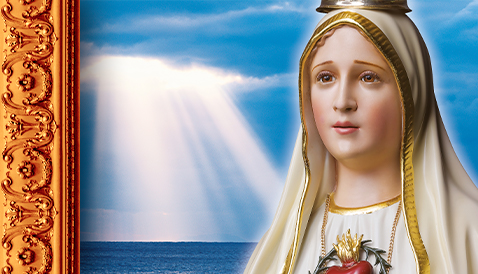
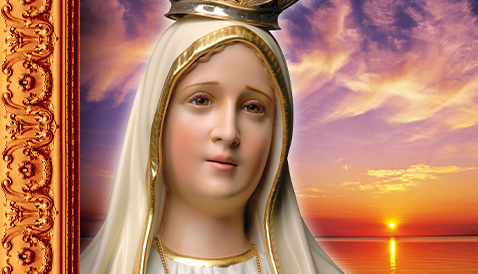
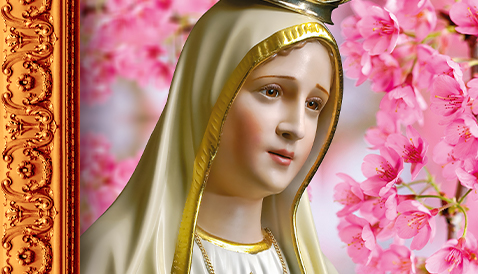
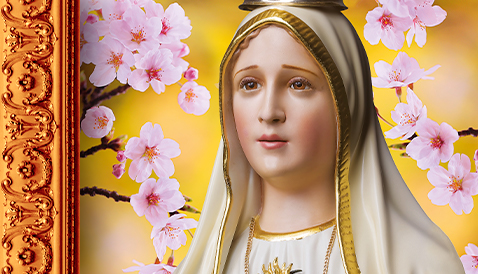
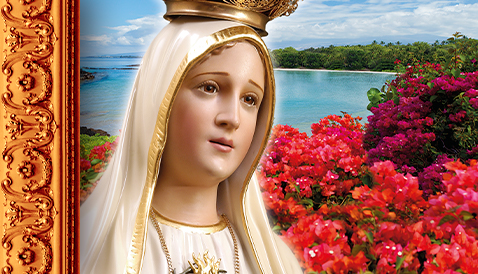
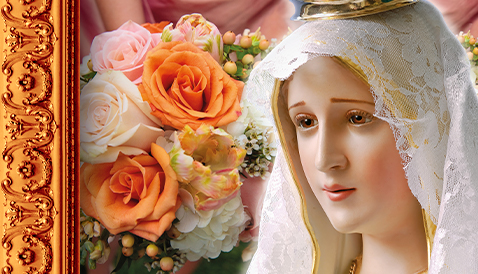
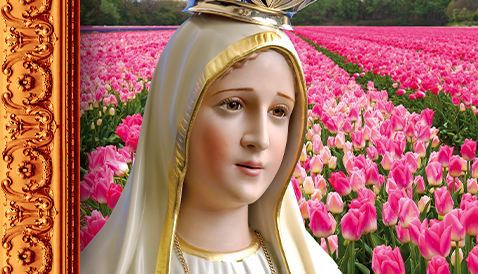
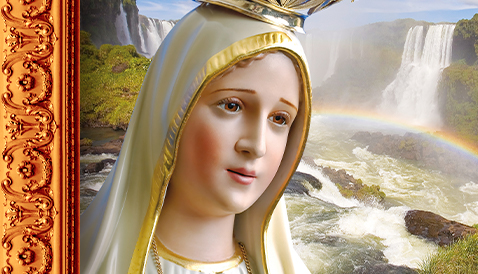
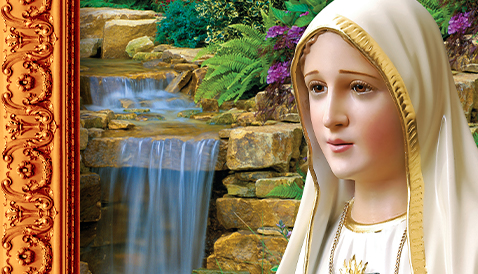
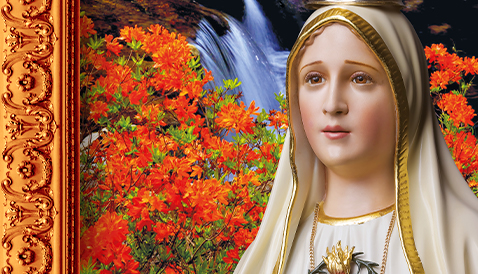
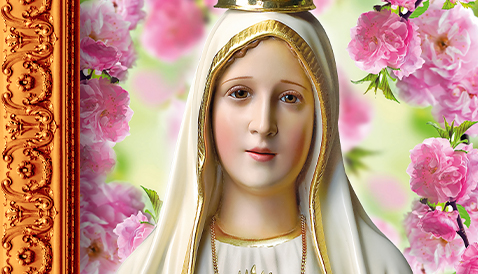
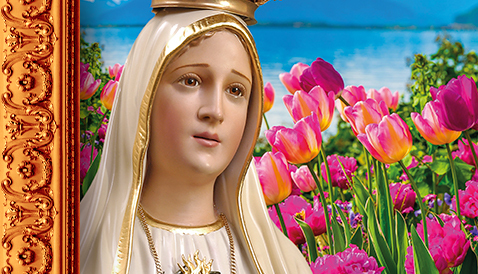
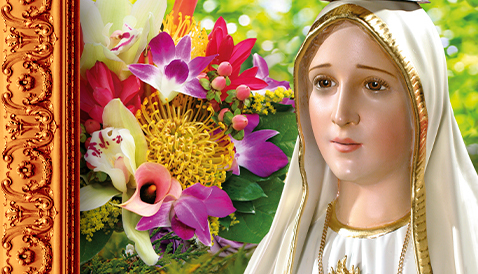
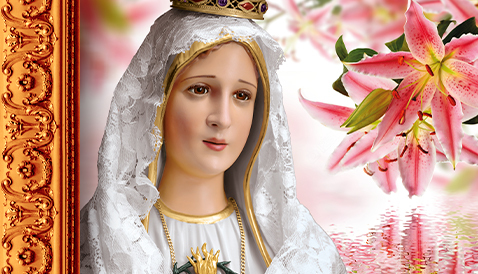
 Treatise on True Devotion
Treatise on True Devotion 